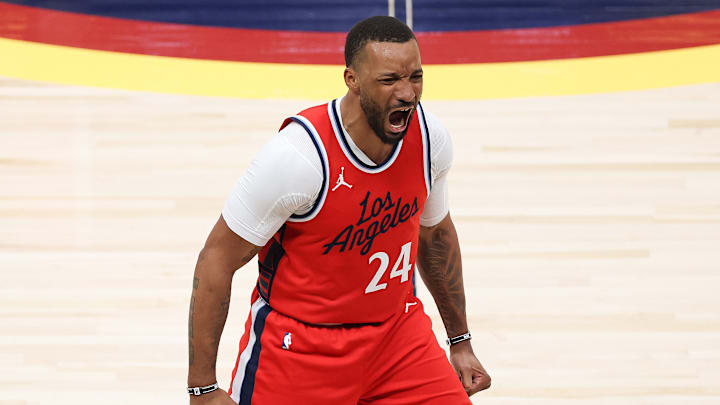The Miami Heat's deeply discounted deal for swingman Norman Powell was about as close to legalized larceny as any move made during the 2025 NBA offseason. He had a near-All-Star effort this past season and served as the No. 2 scorer on the Western Conference's No. 5 seed, and the Heat still managed to snag him away from the Los Angeles Clippers for only Kyle Anderson and Kevin Love.
It was, without question, the biggest steal of basketball's summer. It was also a trade that could grow even more beneficial to the Heat if they're able to extend his contract, which is otherwise set to expire after the upcoming season.
Powell is worth keeping around for the long haul.
Did Powell play above his head this past season? Perhaps. It isn't often you'll see a full-fledged breakout from someone already in their 30s—he turned 32 in May—and it's probably worth noting he did slow down during the campaign's final stretch (14.4 points after the All-Star break; an even 16 in seven playoff games).
Still, that really only matters if Miami would pay Powell at a rate that suggested it felt his scorching run would continue. The Heat almost assuredly wouldn't do that. Rather, they'd probably recognize the unique circumstances behind his breakout—he was pushed up the pecking order by Kawhi Leonard's prolonged absence—and trust the bigger sample size that paints Powell as a helpful support piece and not a primary building block.
For reasonable compensation, he's worth having around. He is a low-maintenance offensive player and reliable play-finisher (career 47.1 field-goal percentage and 39.8 three-point percentage) who's typically sturdy enough on defense to not get skewered on that end. As a support starter or featured reserve, he'll typically add something useful to the equation (plus-1.7 net differential over the past five seasons, per Basketball-Reference.com).
The Heat need reliable role players. Unless their superstar wishes are suddenly granted, their success will be tied to a strength-in-numbers approach. Powell would help improve those numbers.
Having him under contract would also give Miami a bit of leverage at the negotiating table with Tyler Herro, who's not even extension-eligible yet (he will be on Oct. 1) but already seems incredibly tricky to price. The Heat wouldn't have to see their backcourt future in Herro-or-bust terms. They could find a number they're comfortable with, stick to that price, and, if need be, let the market dictate his worth. Given how little the league seems interested in one-way scoring guards lately, Herro's next contract could come in a lot lower than people think.
In other words, Powell can provide either protection against Herro's exit or efficient production alongside Miami's lone All-Star from this past season. If the Heat can get Powell to sign for the proverbial right price, they should pounce. He is already established as a reliable veteran, and his play this past season suggests he might—improbably—still have room to grow.
